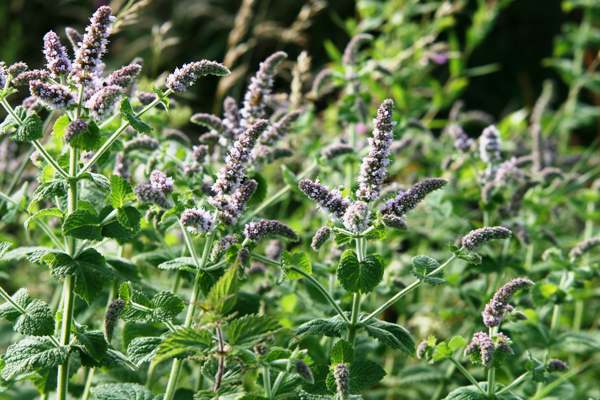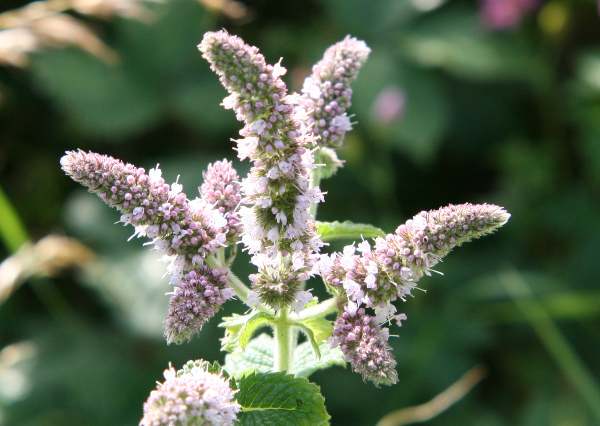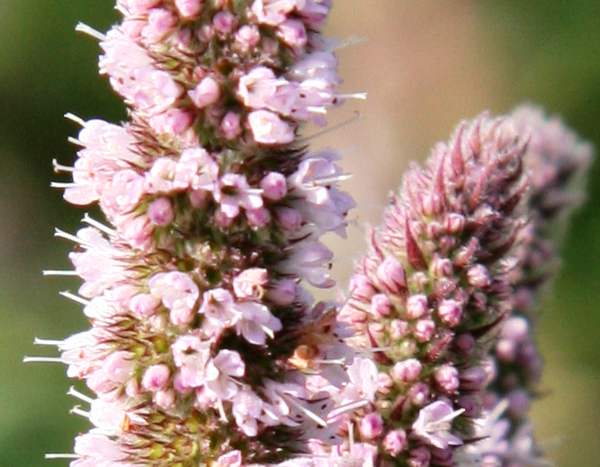Mentha spicata - Spear Mint
Phylum: Magnoliophyta - Class: Equisetopsida - Order: Lamiales - Family: Lamiaceae

Spear Mint is the most commonly grown of the garden mint species, and if not controlled, quickly spreads and dominates the herb patch. It is equally successful when growing in the wild and can form large colonies in the right habitat.

Description
Spear Mint has (unsurprisingly in view of its common name) a spear shaped terminal inflorescence (at the top of the stem), while the otherwise similar Corn Mint Mentha arvensis does not have a flower head at the terminal. This perennial plant spreads via rhizomes. It toothed leaves are in opposing pairs along the stems, and the tiny tubular pink to mauve flowers form in spikes comprising many closely stacked whorls.

Distribution
This plant is a naturalised garden escape and is now widespread throughout the UK and Ireland except in the far north.
Habitat
Spear Mint favours damp meadows and roadside ditches.
Similar species
Water Mint Mentha aquatica has inflorescences in bunched whorls separated by leaf pairs and it has a rounded terminal flower head.
The specimens shown on this page were photographed at Newborough Warren National Nature Reserve in Anglesey, North Wales in September.
Sue Parker's latest ebook is a revised and enlarged edition of Wild Orchids in The Burren. Full details here...
Buy it for just £5.95 on Amazon...
Please Help Us: If you have found this information interesting and useful, please consider helping to keep First Nature online by making a small donation towards the web hosting and internet costs.
Any donations over and above the essential running costs will help support the conservation work of Plantlife, the Rivers Trust and charitable botanic gardens - as do author royalties and publisher proceeds from books by Pat and Sue.

